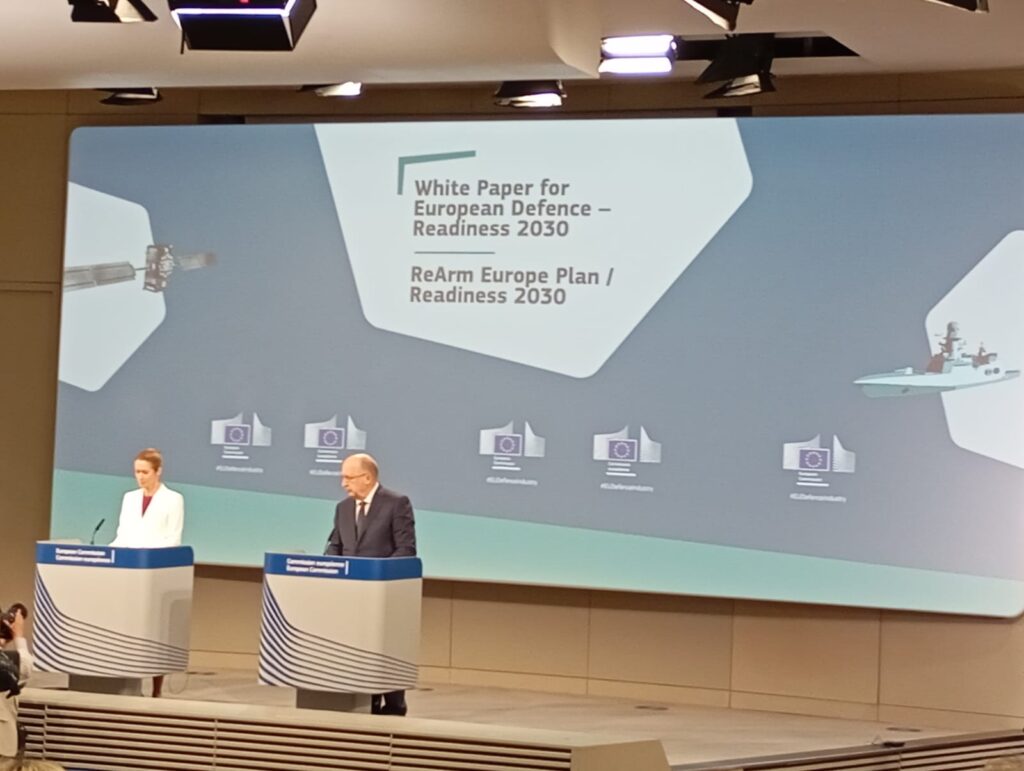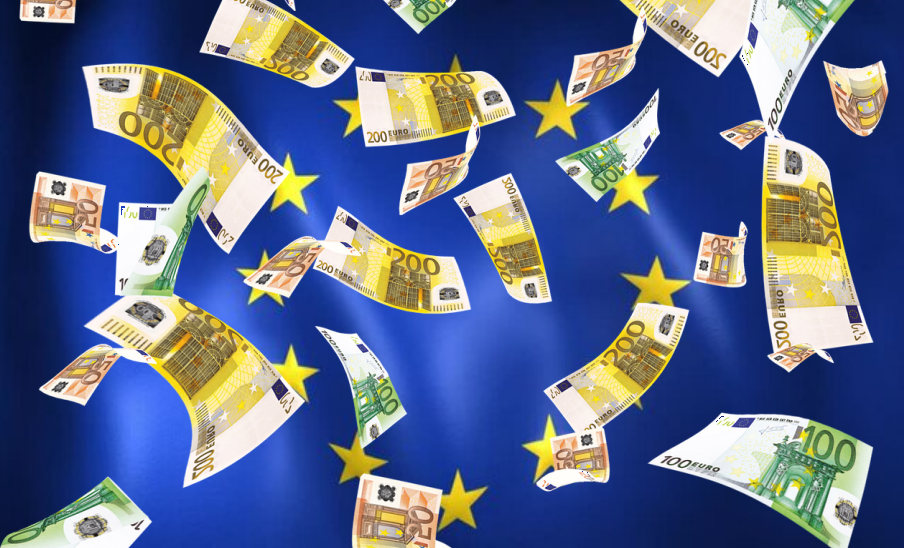Brussels – The basic framework and the financial solutions do not change; most importantly, the sense of urgency and “being prepared for the worst” remains unchanged. In the final version that the heads of state and government in the EU will discuss at this week’s summit (March 20-21), the White Paper for the Future of Defense maintains the original framework and opens up the possibility of working together with non-EU partners, which translates into the possibility of joint procurement with Norway and more cooperation with the UK, Canada, Japan, India, and South Korea.
“Now it’s about implementing, implementing and implementing, because we’re not going to stop [Russian President] Putin by reading this white paper,” emphasizes the Defense Commissioner, Andrius Kubilius, who stresses that “this is not just about military strength, but about our readiness, strategic autonomy, and the future of Europe as a global player.” However, a mix of desire for power and fear drives the EU plan. There are fears that Putin’s Russia “could test our military response capability five years from now,” they admit in the Commission, which is why, as an EU, “we need to restore credible deterrence.” The White Paper on Defense responds to this.
The EU’s High Representative for Foreign and Security Policy, Kaja Kallas, calls for sticking to the plan developed by the College of Commissioners because she stresses, “we must be ready for the worst” and because “we are always stronger together,” including “in defending a world where might does not make right.” By the way, Kubilius and Kallas, the former being Lithuanian and the latter Estonian, represent EU countries that announced plans, along with Latvia and Poland, to quit the treaty banning anti-personnel mines, always in the name of security and anti-Russian defense. It is an EU with values that are not absolute and can bend to the logic of the historical era. After all, the EU executive president, Ursula von der Leyen, reiterated that the EU “must prepare for war.” It is one of the purposes of the White Paper on Defense.

Ammunition, drones, artificial intelligence: where to buy
The White Paper on the Future of Defense, which the Commission is presenting along with the
final version of the RearmEU plan, confirms the list of deficiencies to work on with a sense of urgency and priority. Common projects that require work include air and missile defense systems, drones and anti-drone systems, advanced artillery systems (including high-precision and long-range missiles), munitions, information systems and artificial intelligence, and land, sea, and air combat capabilities. In all this, member states should get busy, with the Commission offering to act as a control room.
Industrial goal: buy European
The underlying principle is “European preference,” a way of saying that we should focus on production and purchases of ‘made in EU’ equipment, products, and technologies. There should be three guiding principles to do things: look for a European solution; negotiate with European manufacturers and suppliers price reductions and lead times, “possibly with EU support;” if a European solution is not available at the required prices or timelines, member states should jointly turn to third-country suppliers, seeking complete control of the process.
EU support through the common budget and regulatory simplification
At the financial level, the Commission’s White Paper contains nothing new compared to the approaches seen so far. There is still a firm commitment to provide 150 billion euros in loans to member states through funds raised on the markets and guaranteed by the EU budget. In addition, there are eight billion for research and development activities through the European Defense Fund and 300 million euros through the EDIRPA program for joint procurement to mobilize up to 11 billion euros in additional investment.
It is just the beginning of a process that EU Commission President Ursula von der Leyen intends to pursue immediately away. In the White Paper, she said she plans to start a strategic dialogue with the defense industry “immediately” and to outline a regulatory simplification proposal for the sector “by June 2025” through a new omnibus package. Again, “appropriate corrective actions” will be taken to resolve the military mobility problem and thus remove “remaining obstacles to the movement of troops and equipment.”
Public accounts, the limits to the stability pact
Plans to suspend the internal stability pact, not the EU pact, for four years to allow member states to increase defense investment remains firm. The communication on the subject specifies the maximum duration, starting in 2025 and then eligible through 2028, and how much flexibility is given. The reference is 2021, a year in which individual states’ military spending was lower than in recent years. From that baseline, each member country will be allowed to spend up to 1.5 percent more GDP per year and go over the 3 percent deficit/GDP ceiling without the Commission initiating an excessive deficit. Instead, if more is spent, the rules will apply without exception. This is to ensure that deficits remain under control and sustainable.
The EU’s strategy “will also stimulate economic growth, drive innovation, and create jobs while ensuring fiscal sustainability,” highlights Economy Commissioner Valdis Dombrovskis. Although they admit that in Brussels, it is impossible to talk about economic returns, “We have no estimates on the growth impact from defense investments,” sources admit. One can only say, “From each euro spent, we will generate many more euros.” We will see how many more later.
Ukraine’s industrial integration and military support
It remains firm that the strategic goal for the future of defense concerns Ukraine’s integration with the EU from an industrial perspective. The Paper emphasizes the need to bring the candidate country into the 12-star sectoral market, “fostering direct investment in the Ukrainian defense industry,” while ensuring “access to satellite services,” starting with those provided by ISAC, the data and information sharing center.
In addition, there is a renewed call for immediate military support for short-term needs. Here, the Paper insists on providing air defense (high-precision missiles and drones) and upwardly revising the commitment to supply broad-caliber bullets during 2025, now set at two million pieces instead of 1.5 million. In addition, it insists on training missions for the Ukrainian armed forces.
These and other defense-related issues will be discussed on April 15 in Rome at the Connact series event “Joint European defense: financing and industrial integration.”








